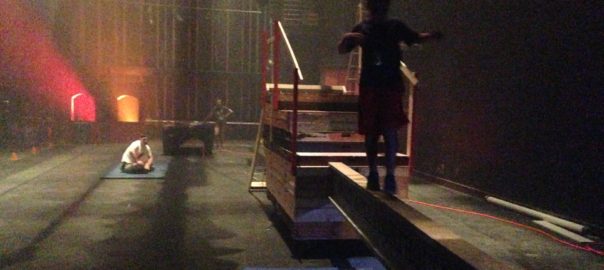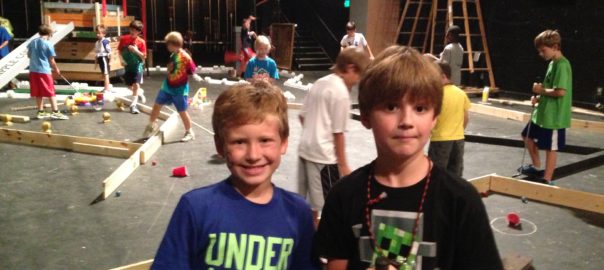One of our favorite gags on the first day of camp is to ask our campers, “Are your parents trying to get rid of you? Why would they send you to a place called Danger Camp!?” But given the title, one might be surprised to learn that very few parents actually ask the question, “Is Danger Camp dangerous?” Perhaps some parents know and trust the camp founders. Others may assume that if the camp is sponsored by a school, it must be safe. Possibly, kids have so much fun at Danger Camp, parents simply don’t want to know what we are doing. But before we get into HOW dangerous Danger Camp is, I’d like to first talk about the WHY.
Baby Boomers (born before 1964), as well as the members of Generation X (1965-1976), grew up in a very different environment than Millennials and whatever we’re going to call our current youngsters. Back then, school, clubs, and sports were less demanding and taxed less of our time. Children were not carted from activity to activity and had less (or no) access to games, movies, and social media. They were often expected to entertain themselves. There was a tremendous amount of freedom and often little supervision.
I’m currently reading a book called Where the H-E-double-hockey-sticks Were Your Parents, by Nathan Weathington, a hilarious memoir about a pair of twins growing up in Bremen, Georgia. The lack of supervision these boys had is scandalous. They had no sense of the words, being safe, and without a doubt (the author would agree) they were terrors to the community. But Weathington’s point is clear. He and his brother grew up fiercely independent and if push came to shove, they could fend for themselves.
To be clear, no one is advocating for a pair of nine-year-olds to be able to hitchhike to the state line and buy fireworks. But most parents would agree that confidence, independence, and imagination, are positive qualities for their children to develop. The founders of Danger Camp bring a theater background to the program. But theater is about make-believe. Actors pretend to be someone else. By relying on old-fashioned fun and by adding a small element of danger in a safe and controlled environment, we find our campers become 100% invested. At that level of buy-in, we’re no longer pretending to be pirates. Add a few cardboard swords and we are pirates. When kids are committed and feel they are free to be themselves, confidence and self-esteem thrive.
So, is Danger Camp dangerous?
In my high school shop class, I tell my students that tools are not necessarily dangerous. It all depends on how you use them. But no matter how careful you are, power tools are always potentially dangerous. Students must learn to treat the tools with respect. In camp, concerned parents would no doubt raise an eyebrow if they knew we played with fire. But when we “play” with fire, we use a chemically enhanced medium that burns so quickly, it can’t burn your skin. And although we know how safe it is, we present it as if we are truly working with fire. Our campers learn to treat each activity with respect. In class, I expect high school students to pay attention and work with caution. In camp, we assume the opposite. Although most campers follow directions, some don’t remember the rules we set out or simply don’t have the self-awareness to follow them. For their age and development –that’s okay.
Danger Camp activities are often designed to appear much more dangerous than they really are. We work with small groups, but in activities deemed to be potentially dangerous, we may only have two or three campers participating at any given moment. Other campers are kept at a distance and out of harm’s way. In these types of activities, kids stay engaged even while waiting their turn because they are just as excited to watch the others take their turns.
There are plenty of ways to introduce danger to an activity besides using real fire and pointy objects. Campers infiltrate the enemy spy headquarters protected by alarms and lasers. They must navigate an obstacle course before time runs out. They have to escape a room as a timebomb ticks away in the corner. But again, at Danger Camp, the real goal of the danger, the perceived danger, and even the imaginary danger is to raise the stakes. It increases the excitement and at the same time nurtures growth, confidence, and independence. That commitment bleeds into other activities that encourage problem-solving, creative thinking, and curiosity.
So, there you have it. Danger Camp, like every other camp, is potentially dangerous, but we make it as safe as possible. Our campers experience their fair share of scrapes and bruises but considering the potential for growth and development, I’d like to think a few scrapes are worth it. Based on the number of returning campers we see each summer, I think some of our parents agree.

